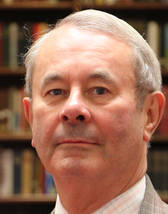The increase of 1.5 per cent real growth in defence spending is inadequate if the Government intends to deliver its planned force structures.
Although the Comprehensive Spending Review only allocates money for the next three years, it presages Defence Strategic Guidance, an internal classified paper in the writing in coming months, which looks to ten years hence. This is the period in which a range of expensive armoured vehicles, combat aircraft and large warships should have come into service but will now be unaffordable to address the scope of future operations envisaged by this Government in the 1998 Strategic Defence Review, its only full review of defence policy.
What have large aircraft carriers and their fighter aircraft to do with operations in Iraq and Afghanistan where the need is boots on the ground to counter insurgencies? Current operations are not funded from the Defence Budget but from central government contingency funds. However, increases in troop numbers that might compensate for ‘overstretch’ are indeed Defence Budget liabilities.
There is a choice here for British defence policy and for the electorate when the time comes. On the one hand, more ground troops would be useful in the short term not only for Afghanistan and Iraq but for other complex emergencies in which a British government may wish to intervene with all the familiar risks of embroilment - presuming of course that there will be the national will for repeats of messy ground interventions. On the other hand, a force structure with adequate maritime and air arms would in the medium to long term provide the widest range of options to contribute to international security through presence, intervention, and deterrence of potential aggressors, and indeed for defence of the homeland and its perimeter if the need arises. What about a fresh Defence Review spawned by a clear and comprehensive National Security Strategy?
The views expressed above are the author's own, and do not necessarily reflect the views of RUSI.
Michael Codner
RUSI Senior Associate Fellow for Military History

